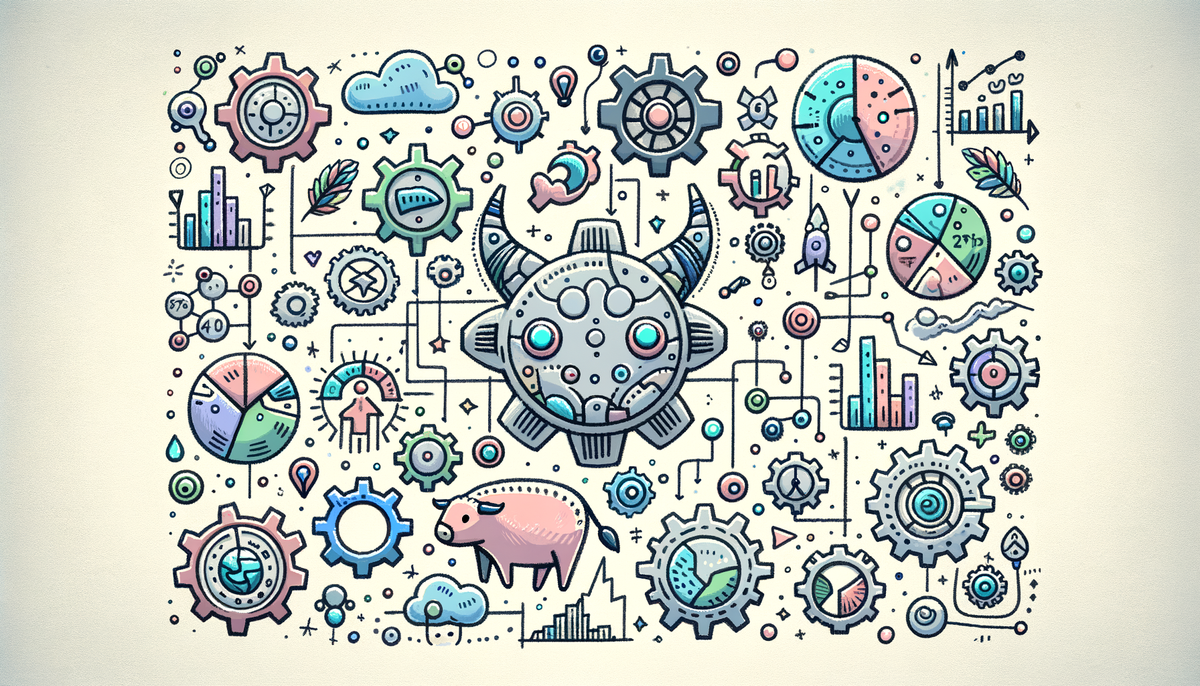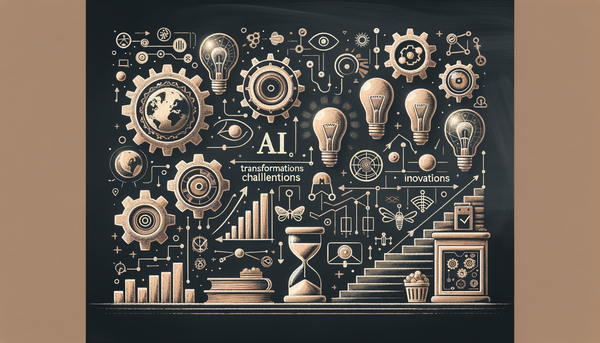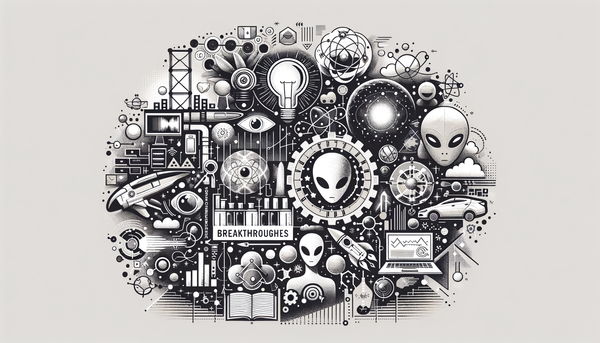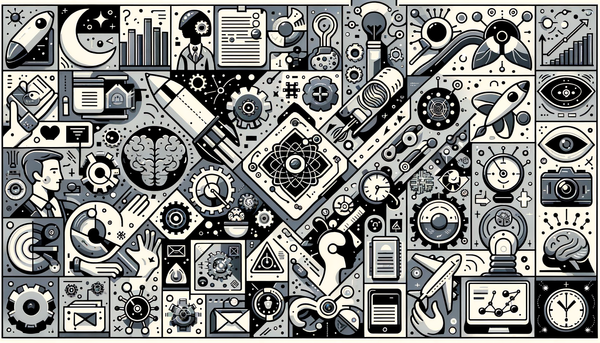Boosting Team Productivity Without Generative AI

Investors, team leaders, and tech enthusiasts alike are witnessing dynamic shifts across the AI landscape—from bargain stock opportunities powered by innovative breakthroughs to transformative shifts in work culture and cybersecurity, where AI is redefining not just future investments but the very fabric of our daily operations.
Capitalizing on AI: Investment Opportunities in a Tech-Savvy Era
The rapid acceleration of artificial intelligence has created a fertile ground for investment, and some market players are already riding the bullish trend. A recent analysis highlights two bargain stocks from the “Magnificent Seven” that are making significant waves. One of these companies is on the cutting edge of AI innovation, leveraging the expanding adoption of new technologies to fuel long-term growth. With strong fundamentals and forward-thinking strategies, its impressive performance metrics hint at robust future potential for savvy investors.
Not to be outdone, a second firm stands out through its seamless incorporation of AI into existing services. This stock not only offers attractive valuations but also demonstrates a promising growth trajectory as AI technologies continue to permeate various industries. For those interested in the financial side of artificial intelligence, a wealth of insights and further discussion can be found on our AI investment trends page at AI.Biz.
In the spirit of informed decision-making, it is worth reflecting on the words of Oren Etzioni, who noted,
"AI is a tool. The choice about how it gets deployed is ours."
This sentiment underlines the importance of careful selection in investment opportunities, where clear-headed strategy combined with due diligence could yield substantial rewards as AI continues its meteoric rise.
Enhancing Productivity Without Overreliance on Generative AI
While much of the discourse around artificial intelligence centers on breakthrough technology and investment trends, another equally compelling narrative is emerging around workplace productivity. In today’s business culture, the race to integrate generative AI into every facet of operations is tempered by pragmatic strategies that focus on human empowerment and smart process optimization. One notable perspective outlines five innovative approaches to boosting team productivity that bypass the need for heavy reliance on generative AI tools.
Empowerment lies at the heart of these strategies. Drawing on insights from leaders in major companies, such as Carrie Jordan from Microsoft, it is evident that a supportive and inclusive work culture can dramatically uplift morale. When employees feel like valued contributors rather than cogs in a machine, productivity naturally takes flight. Moreover, trimming down unnecessary meetings and streamlining roles can turn a cluttered workflow into a well-oiled machine. This is reminiscent of Agile methodologies, which emphasize clear roles and rapid feedback cycles.
Additionally, exploring employee-specific motivators—whether structured feedback or flexible working hours—can unlock hidden potential within teams. As detailed by experts in productivity, replicating the best practices of top performers can create a virtuous cycle where informed strategies foster an environment that is both happy and effective. For a broader view on these productivity trends, be sure to check out our detailed discussion on enhancing team productivity at AI.Biz.
The Frontier of Autonomy: China’s Foray into Human-Level AI
While investments and workplace efficiency continue to be hot topics, the race towards achieving human-level artificial intelligence has taken a dramatic turn in China. An in-depth report has recently spotlighted Manus, an AI agent developed by Butterfly Effect that is stirring considerable discussion. Described as the "world's first fully autonomous AI," Manus exhibits remarkable capabilities—from booking holidays to composing podcasts without human intervention. The sheer novelty and potential of such a system have opened new debates on the very essence of artificial general intelligence (AGI).
As Manus employs multiple AI models working in tandem, it challenges our traditional understanding of autonomy. Some experts argue that while Manus displays many characteristics of true AGI, its current operational framework might not yet fully qualify as human-level intelligence. The implications, however, are profound. The potential for autonomous systems to evolve their own methods of communication and decision-making has sparked comparisons to historical technological leaps, reminiscent of discussions from the dawn of the nuclear age.
This landmark development in AI also poses regulatory and ethical challenges that must be addressed collectively. Many experts warn that without proper global cooperation and thoughtful regulation, we might witness scenarios that echo the unintended consequences of past technological revolutions. For more detailed insights on this important issue, exploring our further analysis on how these advancements are shaping global policy discussions can provide a comprehensive perspective.
Curating AI Tools: Quality Over Quantity
In the era of digital abundance, the market is awash with an overwhelming array of AI tools, each promising to revolutionize our lives. Yet, one compelling narrative urges users to simplify: focus on a select few that truly enhance productivity and well-being. Lester Mapp’s assertions resonate deeply in an age marked by constant updates and dizzying arrays of applications. According to him, rather than falling prey to AI FOMO, one should curate a toolbox of trusted tools that solve specific problems.
Mapp shares that his daily routine is streamlined with a few high-quality applications: ChatGPT for brainstorming, Perplexity for in-depth research, Grammarly for refining language, and Canva for creative design. This method not only minimizes distractions but also improves overall efficiency, ensuring that technology remains a servant rather than a master of our daily processes. By carefully selecting and sticking to tools that fill particular needs, professionals can maintain focus and reduce the stress associated with too many choices.
The strategy of deliberately ignoring the bulk of available AI tools is both counterintuitive and refreshing. It enables users to zero in on reliable, tested solutions that bolster day-to-day productivity. As the adage goes, "Less is more," a sentiment that rings particularly true in an increasingly AI-saturated landscape.
Artificial Intelligence: The New Bulwark of Cybersecurity
As businesses become more digital and interconnected, the risks associated with cyberattacks have escalated at an alarming pace. In this evolving threat landscape, artificial intelligence is emerging as a secret weapon to counter increasingly sophisticated cyber threats. With the ability to analyze massive volumes of data in real time, AI systems can detect anomalies and potential breaches far more quickly than traditional methods.
By leveraging machine learning, cybersecurity systems can continuously learn and adapt to new tricks employed by cybercriminals. This proactive defense mechanism doesn't just react to attacks—it anticipates them, giving organizations precious time to respond effectively. In doing so, AI not only strengthens digital defenses but also liberates security teams from the drudgery of routine monitoring. Freed from mundane tasks, these professionals can focus their energies on more strategic initiatives.
It is fascinating to note that AI’s role in cybersecurity underscores a broader trend: the merging of fast-paced technological innovation with traditional sectors to offer smarter, more agile solutions. This convergence has never been more critical than in an age where the cyber frontier is constantly expanding. Read more about this transformative impact on our dedicated AI investment analysis page at AI.Biz.
The Evolution of Research: ChatGPT as a Personal AI Research Assistant
Innovative applications of artificial intelligence continue to redefine everyday activities, and one particularly exciting development is ChatGPT’s new role as a personal research assistant. Known for its conversational prowess, ChatGPT now boasts a Deep Research feature designed to dig deep into web resources, collate comprehensive insights, and deliver neatly organized reports—albeit behind a subscription paywall.
This new feature enables users to formulate complex inquiries while ChatGPT works in the background to fetch verified data, complete with clear subheadings and embedded hyperlinks. The seamless dialogue-driven approach ensures that research is both interactive and accurate, providing a user experience that marries convenience with depth. This is an excellent example of how AI is venturing beyond simple task automation into realms that require critical thinking and in-depth analysis.
For those who treasure reliable and structured information, this could redefine how research is approached. As an illustrative example, consider how a historian might use such a tool to gather intricate details on a period or how a tech enthusiast could compile data on emerging platforms. The implications extend far and wide, making ChatGPT a standout innovation in personal research assistance.
Nvidia: A Strategic Beacon in the Vast AI Ecosystem
Nvidia has not only become synonymous with cutting-edge AI technology but has also emerged as a formidable investor in the AI startup ecosystem. Over the past two years, Nvidia has significantly upped its game, participating in more than 80 funding rounds to back startups that promise to redefine the future of technology. The company recently led numerous rounds, including strategic investments into high-potential ventures such as OpenAI and Elon Musk's xAI, demonstrating its commitment to shaping the AI landscape.
This aggressive investment strategy is a testament to Nvidia’s broader vision—a vision that sees artificial intelligence as a transformative force across sectors ranging from autonomous vehicles to cloud computing. As AI startups rapidly evolve, Nvidia's backing not only fuels innovation but also signals confidence in a market that is poised for exponential growth. These initiatives underscore the idea that investment in AI is not just about capitalizing on immediate trends but also about building an ecosystem that thrives on continuous innovation.
For those intrigued by the financial and technological dynamics at play, additional insights into Nvidia’s AI investments are available on our dedicated page Nvidia’s AI Future at AI.Biz. It’s a reminder that behind every groundbreaking innovation are strategic decisions that propel industries forward.
Reflections on the AI Revolution
What we are witnessing today is a multifaceted revolution. Whether it’s the rising stock values fueled by AI innovations, streamlined strategies that empower teams, or robust cybersecurity measures that fend off digital threats, artificial intelligence continues to redefine the boundaries of possibility. In this landscape, every development—from chatbots that double as research assistants to autonomous agents that challenge our ethical frameworks—adds another layer to our understanding of technology’s transformative power.
This revolution is not without its challenges. The rapid evolution of AI brings forth ethical dilemmas and regulatory questions that demand global attention. It calls for informed decision-making from both investors and policymakers, ensuring that the deployment of these powerful tools remains a force for good, aligned with collective human values.
Michael Dell once observed,
"We are in the early days of an AI revolution. In the long run, AI will change the very nature of how humans work and interact with machines."
Such perspectives serve as both inspirations and cautionary tales, urging companies and individuals alike to strike a delicate balance between innovation and responsibility.
Further Readings
For more detailed perspectives and in-depth analyses on the rapidly evolving world of artificial intelligence, check out the following sources:
- 2 Bargain "Magnificent Seven" Stocks to Ride the AI Investing Wave – The Motley Fool
- 5 ways to boost your team's productivity without relying on generative AI – ZDNet
- China is on the brink of human-level artificial intelligence – and it’s about to cause chaos – The Independent
- Why you should ignore 99% of AI tools – ZDNet
- Is AI The Secret Weapon To Help Stop Cyber Attacks? – Forbes
- How to use ChatGPT as a personal AI research assistant – Popular Science
- Nvidia’s AI empire: A look at its top startup investments – TechCrunch
- Nvidia: The Frontline of AI Investment – AI.Biz
Conclusion: Highlights of the AI Journey
From the savvy investor’s perspective to the disciplined manager's productivity toolkit, the AI revolution is proving to be a multifaceted catalyst for change. Nvidia's extraordinary investments and groundbreaking technologies underpin an industry where every breakthrough could reshape our world. As AI technology continues to evolve at an unprecedented pace, our collective responsibility remains to harness this force wisely, ensuring that innovation drives progress and not peril. As we navigate these transformative times, the future of AI has never looked more promising, resilient, and profoundly human.




